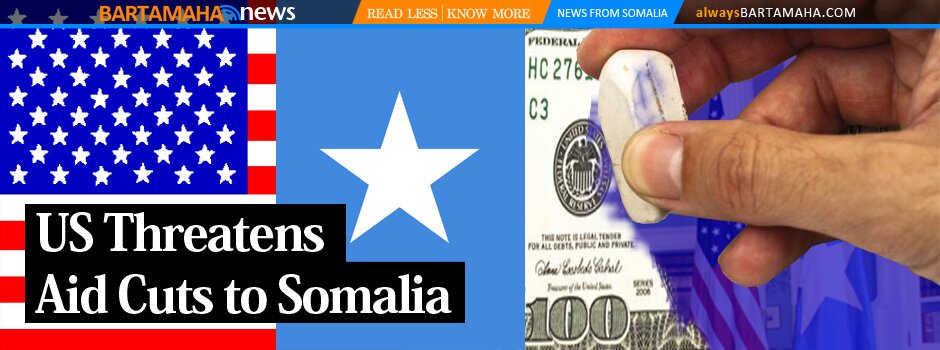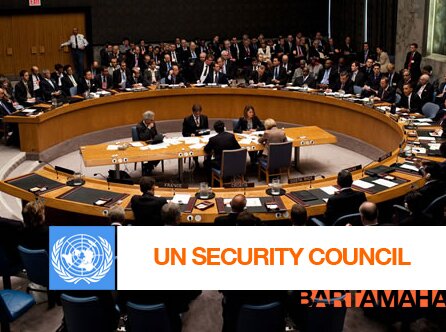UNSC considers arms ban on Somalia for weapons diversion
The United Nations could slap a full arms embargo on Somalia following revelations that the Mogadishu government allowed the sale and diversion of weapons to foreign arms traffickers, criminals and terrorists.
While illegal acquisition of weapons is common in countries in the region, information in a UN report that Somalia’s army is the “greatest” supplier of arms to black markets, must worry East Africa’s security agents.
The UN’s Somalia and Eritrea Monitoring Group, whose mandate includes reporting on any violations of the arms embargo imposed on Somalia in 1992, said in the report that agents of the Al Qaeda-linked militants of Al Shabaab are known to frequent those black markets “to purchase weapons and ammunition and were easily identifiable by the salesmen there.”
The report points an accusing finger at the Somali government, which under UN resolution 2111 of last year, is required to report on the procedures and code of conduct it put in place for the registration, distribution and storage of weapons held by the country’s security forces as well as on training needs.
“If the UN report is authentic, it foreshadows a scary situation. Because these same weapons can be used for terrorist purposes in the region,” said Abdi Mohamed, a Horn of Africa security analyst, adding, “Arms trafficking from Somalia will continue until Somalia security forces are reformed.”
The danger from Al Shabaab — who have so far attacked Kenya and Uganda and vowed to do the same to other countries that have troops in Somalia — is being worsened by the Somali government’s inability to rein in poorly paid officers willing to facilitate the diversion of weapons to the black market.
“There appear to be no procedures in place for the transport and delivery of weapons within the army,” said Jarat Chopra, co-ordinator of the Somalia and Eritrea Monitoring Group, in his report to the UN Security Council two weeks ago, which has been seen by The EastAfrican.
“Prior to November 2013, most weapons sold were black market weapons, whereas dealers now say the greatest supply of weapons is from Somali National Army stocks,” said the report, citing sources in arms markets.
The unsold stock of such weapons is usually “taken back to garages and houses owned and operated” by army officers, said the report, citing dealers.
Proliferation of small arms and light weapons remains a serious threat to security in the larger East African region. The experts said the many porous borders between countries, especially Somalia’s borders with Kenya and Ethiopia, are conduits of arms smuggling.
Attempts by the East African countries of Kenya, Uganda, Tanzania, Rwanda and Burundi to forge a common strategy to combat the arms trade in the region have largely failed due to the conflict in Somalia. The countries are hoping a common defence protocol will help deal with the situation. They are, however, yet to ratify the protocol.
The report accuses two Somali clans of “prosecuting a narrow clan agenda,” saying they are “centres of gravity for weapons procurement within the [government] structures.”
“The trends described above demonstrate that the implementation of the [government’s] security policy is being captured by clan and sub-clan politics,” said the report. “Weapons distribution along clan lines for the purposes of prosecuting clan warfare is ultimately reducing the prospect of a cohesive strategy by the (government) against Al Shabaab.”
The Al Qaeda-linked group has, since its withdrawal from Mogadishu in 2011, been waging a guerrilla war against government forces and their African Union peacekeeper allies. On February 21, its fighters stormed a highly protected complex where President Hassan Sheikh Mohamud’s office is located.
The diversion of weapons is particularly striking, especially in a country where communal violence frequently takes place and where many major clans are in a rush to create demographic realities on the ground before the Horn of Africa nation fully recovers from decades of civil war and chaos.
David Shinn, a Somalia expert and adjunct professor at George Washington University, said the allegations in the report pose “a dilemma” for the UN Security Council.
“The UN Security Council and the international community will want to get to the bottom of these allegations and, if they are true, put a stop to all practices that violate the regulations on the acquisition of arms by the Somali government,” said Mr Shinn.
The report, prepared for the Security Council to help it decide on this issue next month, offers eight options, ranging from total lifting of the ban to keeping the status quo, to extending the partial lifting of the embargo that allows Somalia’s government to buy small arms, such as rocket launchers, grenades, assault rifles and ammunition.
Although the UN last year allowed Somalia’s fragile government to purchase small arms, the global body has also left in place the bulk of the arms embargo for fear that the war-ravaged country could slide back into chaos.
Somalia’s government has, in recent months, been pushing for the extension of the partial lifting of the arms embargo, arguing that it had met the requirements of the Security Council.
On Monday, President Mohamud said authorities had put in place “measures to address weapons and ammunition management.” The army chief, Dahir Adan Elmi, has also dismissed the report, saying its allegations were “unfounded.”
But the report depicts a different picture, saying it has identified “a number of issues and concerns over current management of weapons and ammunition stockpiles by the Federal Government of Somalia (FGS), which point to high level and systematic abuses in weapons and ammunition management and distribution.”
The report alleges that the government did not sufficiently report to the Security Council on its military structure, logistical infrastructure and arms control procedures, and that “notification procedures for the delivery of weapons to Somalia appear to be insufficiently detailed.”
Since last year’s waiver, Somalia has received weapons and equipment from an unidentified Gulf state as well as Djibouti, Ethiopia and Uganda, but the report reveals that some of those weapons were diverted to the black market, to the Al Shabaab and even to clan militiamen allied with government officials.
It says that “large quantities of ammunition” have been diverted to the black market, “leaked by rogue elements” of the national army. It particularly expresses “serious concerns” about 1,000 AK-47’s that were delivered from Uganda but were diverted out of government control.
The report accuses two prominent clans — the Abgaal and Habar Gedir clans — of “at times working against the development of peace and security in Somalia through the distribution of weapons to parallel security forces and clan militias that are not part of the Somali security forces.”
The US Director of National Intelligence, James Clapper, last month predicted that “the credibility and effectiveness of the young Somali government will be further threatened by persistent political infighting and weak leadership from President Hassan Sheikh Mohamud.”
The UN report talks of instances in which government officials have been funnelling weapons to allied militiamen to give a boost to their clansmen engaged in recent clashes in Jowhar city as well as the central and Lower Shabelle regions.
It accuses an unnamed government minister of providing logistical support for the creation of militia forces in central regions of Somalia in co-operation with a “known general” from the army.
The report also alleges that a senior adviser to President Mohamud has played a role in weapons deliveries to an Al Shabaab leader in a strategy aimed at boosting the president’s political and military power base.
Comments
comments
 Calendar
Calendar







































